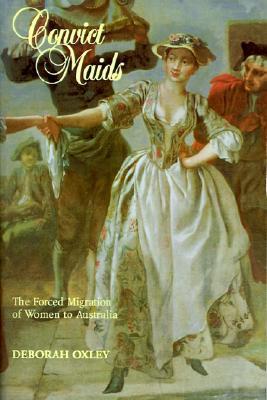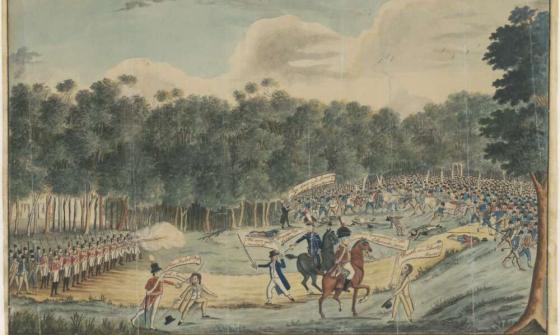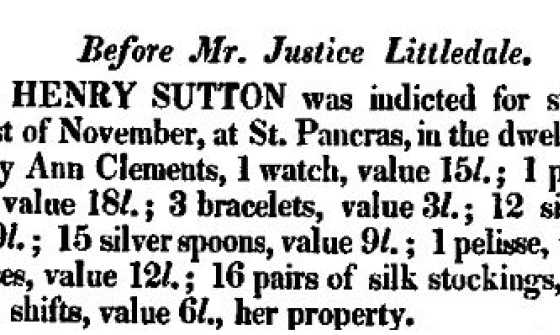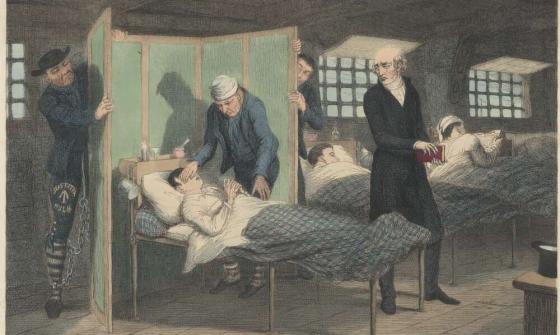Female convicts
The majority of female convicts were first time offenders sentenced to transportation for minor theft (Oxley, Deborah, Convict maids 1996, & pp. 42-48).
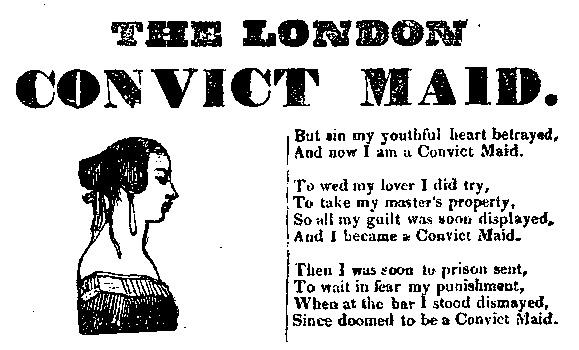
The London convict maid, a cautionary tale of life in the colony, circa 1830, nla.obj-1117449
The London convict maid, a cautionary tale of life in the colony, circa 1830, nla.obj-1117449
Online
Ancestry - Tasmania, Australia, Baptisms of Children of Convicted Women, 1833-1854 - Tasmania
This collection includes baptism records for children born in female factories. Information on these records is limited, however the name of the ship the mother of the baptised child travelled to Australia on is usually listed.
You can access Ancestry in the Library by visiting our eResources portal and searching for this database under the Browse eResources tab.
The Female Convicts Research Centre - Tasmania
The Female Convict Research Centre is a volunteer-run organisation dedicated to the study of Tasmania's female convicts. The Female Convict Research Centre manages the Female Convicts in Van Dieman's Land database, which contains transcriptions and research uploaded and undertaken by volunteers. While searching this database is free, you must first register as a member to access it.
Ironclad Sisterhood: Convict Women in Australia - New South Wales
The Ironclad Sisterhood is a collaborative research project based on material held in the archives of The Society of Australian Genealogists that focuses on making details of convict women who arrived in New South Wales accessible online. This project hosts a freely searchable database which provides details of female convict arrivals in New South Wales, including name, year of arrival, ship and more.
Microfilmed and other material
Index Female Factory Parramatta 1826 to 1848. [microform] - New South Wales
The Index to the Female Factory records of Parramatta can be viewed on microfiche in the Library. You can use the index to locate records held by the State Archives and Records NSW. If you can't visit the Library you can request a lookup using our Ask a Librarian service.
From the Edges of Empire - convict women from beyond the British Isles - National
Detailed narratives of the lives of the approximately 200 female convicts born outside the British Isles who were transported to Australia. This publication is split into three parts: Part 1: The Indian Ocean, Part 2: The Caribbean World; and Part 3: Europeans and the high seas. This book provides detailed accounts of the lives of non-European female convicts.
Female Convicts Research Centre publications - Tasmania
The Library holds a number of publications produced by the Female Convicts Research Centre, including:
- Convict Lives at the Launceston Female Factory
- Convict Lives at the George Town Female Factory
- Convict lives at the Ross Female Factory
- Convict lives : women at Cascades Female Factory
Manuscripts
Some of the Library's unique manuscript collections contain valuable information about female convicts
Nottingham Town Gaol Ledger 1836-1845 - National
Entries detail the crimes and particulars of 104 male and nine female convicts who were tried at the Nottingham Assizes and later sentenced to transportation to Australian penal colonies.
Papers of Elwes family, 1848-1959 - Western Australia
Papers of Charles Fitzgerald relating to his Governorship of Western Australia. These manuscripts contain notes on the establishment of a Convict Department, including applications for female convicts.
Research on convicts transported on the ships Minstrel and Fortune in 1812 and 1813 - New South Wales
This manuscript collection consists of three parts:
- Compilation of the results of research into the lives of the 127 female convicts who were transported to New South Wales on board the ship "Minstrel" in 1812
- Compilation of the results of research into the experiences of the convicts transported to New South Wales on board the ship "Fortune" in 1813
- Typescript titled Criminals or political deportees: the experiences of the convicts transported on the "Fortune", 1813, (258 leaves), 1993.
Convict maids
Oxley's Convict Maids contains a detailed demographic analysis of female convicts.
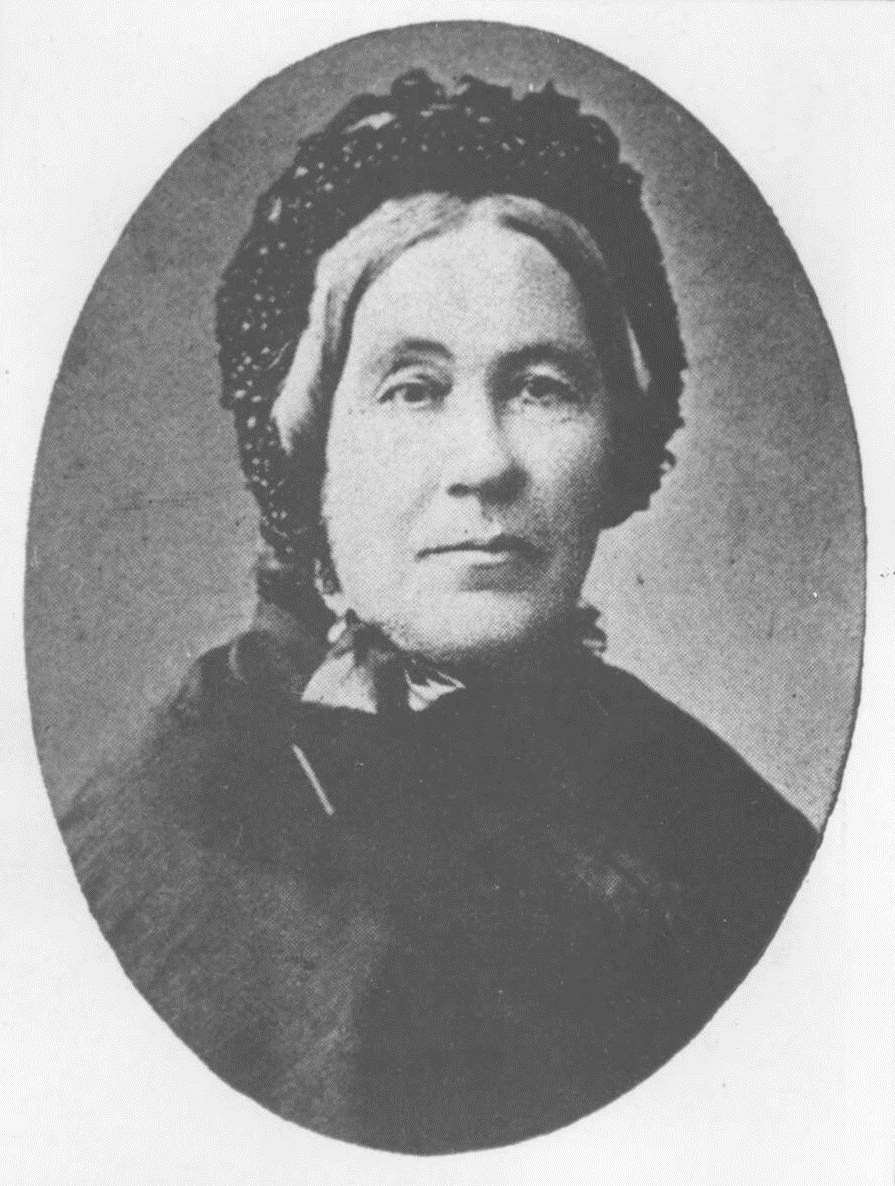
Henningham Studio, Portrait of the late Mrs. Henry Angel who for many years was a well-known figure in Wagga Wagga, between 1888 and 1900, nla.obj-136585915
What happened when a female convict married a free settler or another convict?
Government orders relating to convicts were often published in Government Gazettes, many of which can be viewed on Trove
Read more about Government Gazettes in our research guide.
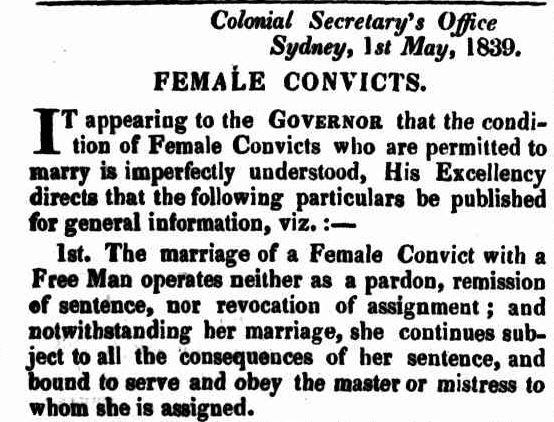
Did you know?
About 25,000 or 15.4% of the convicts transported to Australia were women.
See: Charles Bateson, The convict ships, 1787-1868, 1983, nla.gov.au/nla.cat-vn947602
